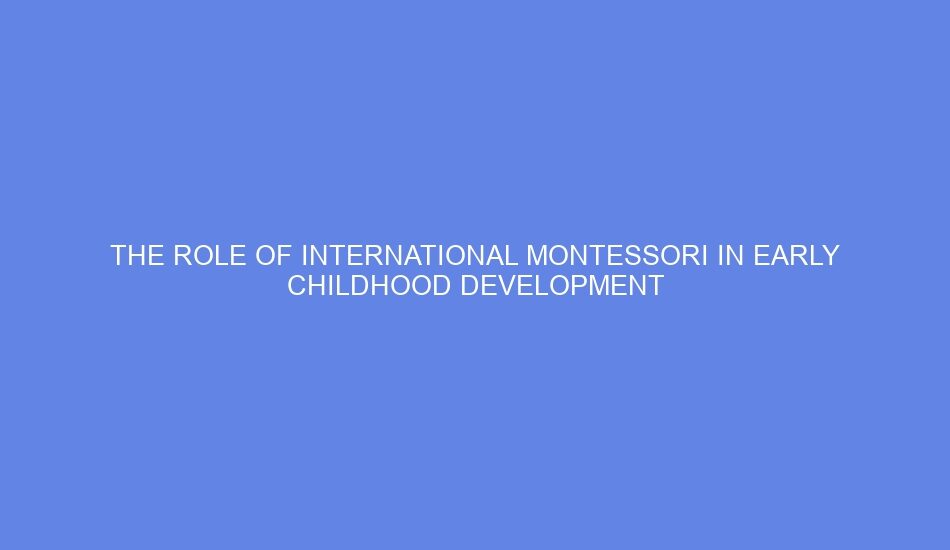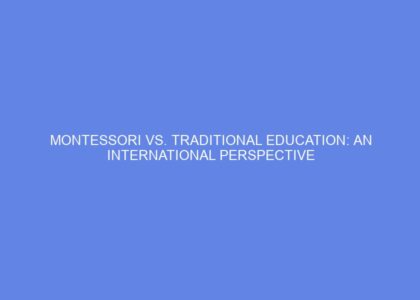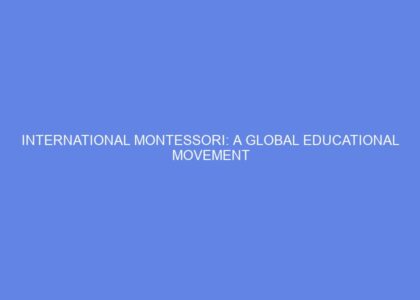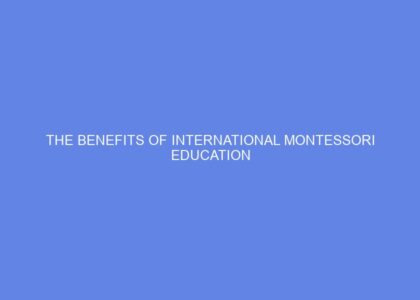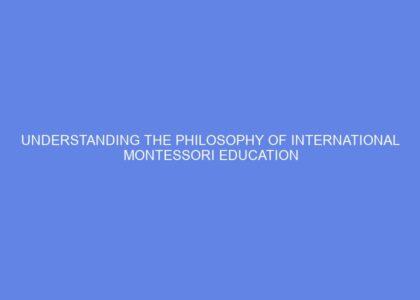Early childhood is a critical period of rapid brain development and foundational learning. International Montessori education plays a pivotal role in harnessing this potential by offering a nurturing, structured, and child-centered environment tailored to each developmental stage.
In Montessori settings, children aged 0-6 are given the freedom to explore activities that match their natural curiosity. The environment is meticulously prepared to support sensory learning, fine motor development, and early cognitive skills. Children learn through hands-on experiences using specially designed Montessori materials that foster understanding through touch, repetition, and movement.
One of the most significant contributions of Montessori education to early childhood development is its emphasis on independence. Children are encouraged to take responsibility for their environment—cleaning up after themselves, choosing activities, and resolving minor conflicts. These responsibilities help build self-confidence and practical life skills from a young age.
Language development is also central. Montessori classrooms are rich in vocabulary, storytelling, and phonetic work, which naturally lead children toward literacy. Math and science concepts are introduced early through engaging, tactile activities that lay a concrete foundation for abstract thinking.
Internationally, Montessori’s early childhood programs are consistent in their holistic approach. They nurture emotional intelligence, respect for others, and self-discipline—qualities that are as important as academic skills.
In conclusion, International Montessori education offers a profound, effective foundation for early childhood development. By supporting the natural developmental phases with purposefully designed environments, Montessori nurtures children who are confident, competent, and compassionate learners from the very beginning.
Nidhin
For More Details Call: +917510220582

